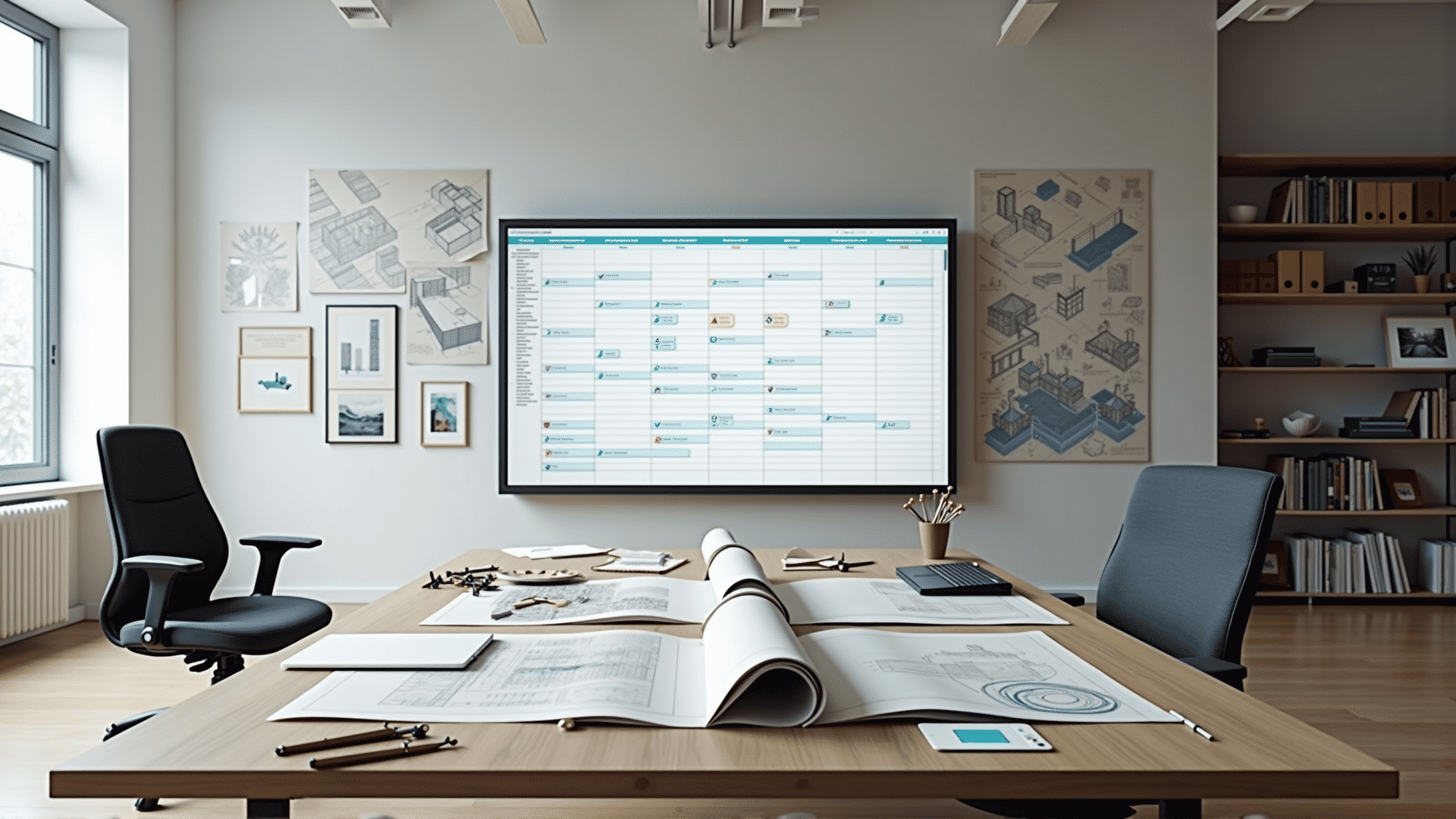In today's rapidly evolving architectural industry, time management and operational efficiency are more critical than ever. With increasing competition and client expectations, architects and design firms are under constant pressure to deliver projects on time and within budget. Enter smart scheduling tools, which are transforming the way architectural projects are planned and executed. These advanced platforms are designed to enhance efficiency and productivity, ensuring that architectural professionals can focus more on creativity and innovation.
Smart scheduling tools integrate technologies like artificial intelligence (AI), machine learning, and cloud computing to automate and streamline complex scheduling tasks. They provide architects with a comprehensive view of their projects, resources, and timelines, allowing for more informed decision-making and better management of workflows.
One of the primary benefits of smart scheduling tools is their ability to optimize resource allocation. In the architectural industry, resources can include personnel, equipment, and materials. By analyzing data on availability, skill sets, and project requirements, smart scheduling software can assign the right resources to the right tasks at the right time. This ensures that no resource is overburdened or underutilized, leading to significant time and cost savings.
Moreover, these tools allow for real-time updates and adjustments. In a field where changes in client requirements or external factors such as weather conditions can impact project timelines, the ability to adapt quickly is crucial. Smart scheduling platforms can automatically adjust schedules in response to these changes, notifying all stakeholders and minimizing disruptions.
Collaboration is another area where smart scheduling tools excel. Architectural projects often involve multiple teams, including engineers, designers, and contractors, each with their own schedules and priorities. Smart scheduling platforms foster better communication and coordination among these teams by centralizing schedules and facilitating the sharing of updates and progress reports. This transparency not only keeps everyone on the same page but also helps in identifying potential bottlenecks before they become critical issues.
Efficiency in scheduling also equates to improved client satisfaction. With smart scheduling tools, architectural firms can provide clients with more accurate timelines and progress updates, enhancing trust and credibility. Clients appreciate being kept in the loop and are more likely to return for future projects when their expectations regarding timelines and deliverables are consistently met.
Furthermore, by automating routine scheduling tasks, smart scheduling tools free up valuable time for architects and project managers, allowing them to focus on creative and strategic activities. The reduction in administrative burdens means more time can be devoted to designing innovative solutions and exploring new design trends, ultimately driving the architectural industry forward.
In conclusion, smart scheduling tools are revolutionizing the architectural industry by maximizing efficiency and productivity. They offer optimized resource allocation, adaptive planning, enhanced collaboration, and improved client satisfaction. As the industry continues to evolve, embracing these smart technologies will be vital for firms looking to remain competitive and deliver exceptional results. By integrating smart scheduling tools into their processes, architectural professionals can not only enhance their operational efficiency but also focus on what they do best—creating inspiring and innovative designs.
